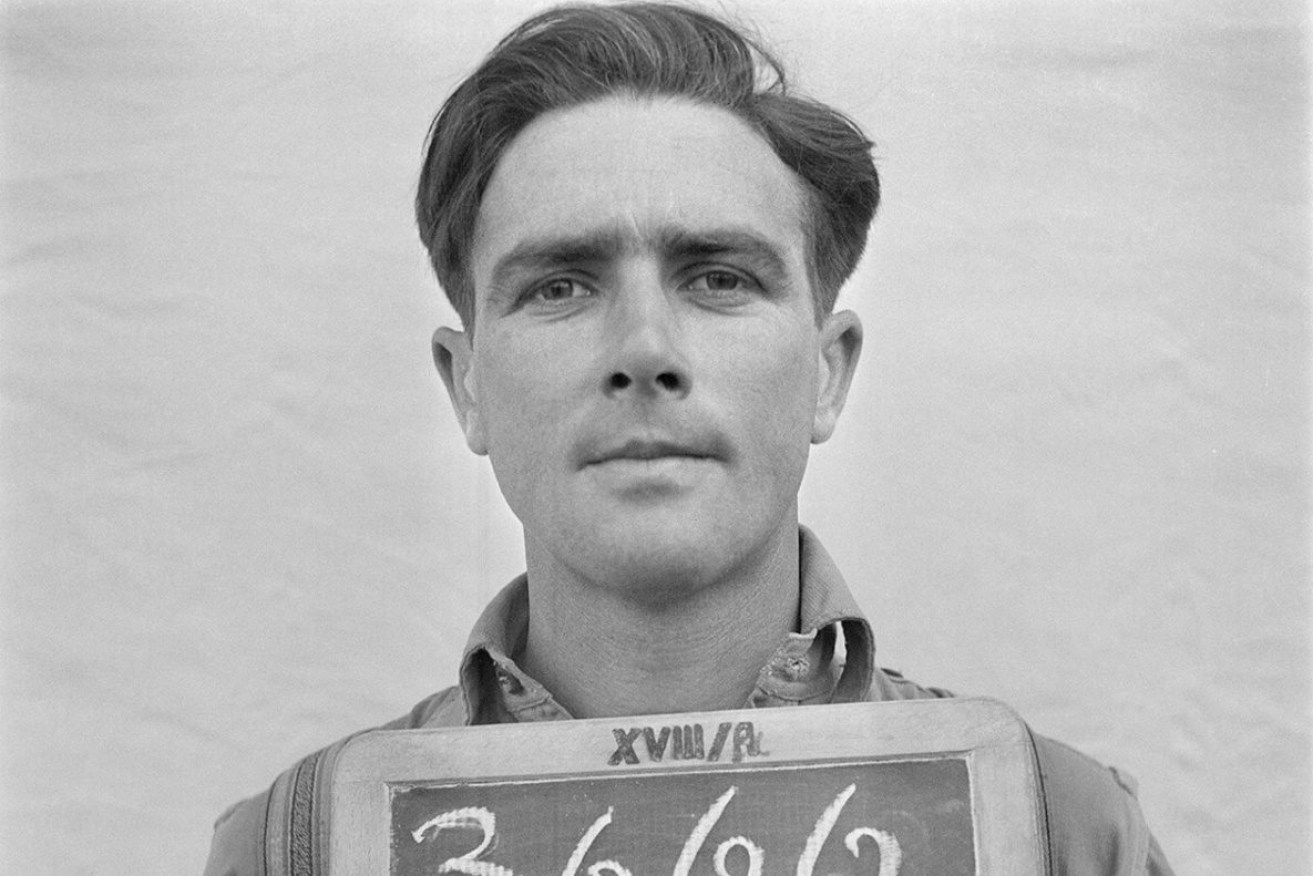Tales from World War II: How a WA woman found the sister she never knew she had


Finlay John Campbell was just 24 when he enlisted.
Finlay John Campbell was just 29 when the war ended.
He had been kept prisoner in an Austrian POW camp for four years before making a daring escape across Europe and over the English Channel channel to get home.
He left behind a girlfriend who was pregnant with his child.
When he got back home to Western Australia, the athlete met a girl, settled down and had some kids.
It was only after he passed away that his four Australian daughters found out they had a half-sister, who lived in a rural village in a country they had never been to on the other side of the world.
On Saturday, veterans and their families will commemorate the 75th anniversary of the end of the Second World War.
For Mr Campbell’s daughter, Linda Allen, it will be a bitter-sweet day.
For their family, something good came out of the war – another sibling that for decades they never knew they had.

Linda Allen was reunited with her half-sister. Photo: Supplied
“Finlay was a state athlete who was supposed to go to the Olympic Games but the war took over,” she said about her dad.
“Then it was called broad jump, but it’s what we call long jump. He held the state’s record for 24 years. That was all happening he then enlisted in the war.
“He was unmarried, unattached when he went away. In his words, he thought he was heading off an adventure.”
Tall and strong, Mr Campbell was a natural soldier. He quickly became a corporal. He fought in the North African desert campaign and was wounded in Greece.
“He was sent to a hospital in Athens,” Mrs Allen explained.
“But then he asked to be discharged because he knew his battalion was being sent to Crete and into the action. He was trying to catch up, that’s when he was captured.”
Mr Campbell was picked up by the Germans and sent in a cattle truck over to Austria.
“They were dirty, not given any water or food for days on end. They arrived hungry, thirsty and filthy and most of them had lice,” Mrs Allen said.
Mr Campbell’s captors sent him to work on a small farm. There were only 15 other prisoners and whenever the British were bombing the area they would roll out a huge Union Jack so they knew not to hit them.
A winner with the ladies, Mr Campbell courted a young girl from the town.
“Dad used to sneak out of the digs at night. There was a shoot down into the pigsty. Little did we know it wasn’t the pigsty he was heading off too,” Mrs Allen said.
“He always told us that because he was an athlete he used to jog to the lake, but it was 12 kilometres away. So I think we know why he would jog for that long. It wasn’t to go for a swim I don’t think.”
His captors eventually found out he had a girlfriend and Mr Cambell was shipped to another camp.

Mr Campbell fought in Northern Africa
Armed with a map a farmer had given him Mr Campbell made friends with a Canadian soldier and they escaped. The pair stole a car and made their way through Austria, down into Italy and over to France.
“They eventually got up to France and they went to this little airstrip, there was a plane sitting on it, it was a brigade’s personal plane,” Mrs Allen said.
“They asked if it was going to England and when they found out dad had been a prisoner of war for four years the pilot said ‘You deserve to escape, get in,’ and he flew them to England.”
Mr Campbell stayed with distant relatives in England before making his way back to WA. Shortly after he arrived his father passed away and his mother suffered a stroke. He stayed to look after her and take over the family farm.
He met a girl, they settled down and had Linda and her three siblings.
It was their half-sister, Hildegard, who found them. She reached out and Linda booked a ticket almost immediately.
“My husband said, well we’ve got to book a trip. We’ve been back twice since,” Mrs Allen said.

The five sisters reunited.
It was an emotional meeting. Through rough translation and using Ancestry.com.au they have pieced their family’s story together.
“She doesn’t speak any English. I have been doing a few German lessons, and she’s been doing English lessons. We all seem to manage to communicate,” Mrs Allen said.
“She’s an Austrian version of us four girls. There’s just no question. She’s got our sense of humour.”
Last year Hildegard came to visit them and see the farm her dad grew up on.
“When she came in July last year, she said her heart and head were full,” Mrs Allen said.

Katrin (Hildegard’s niece) Jill, Hildegard and Linda. Photo: Supplied
Although Saturday will be mixed with different emotions, Mrs Allen will be thinking of her sister overseas.
“We used to say to Dad ‘and how many kids did you have in Europe?’ and he had this smirk and grin. Little did we know he did have a child.
“So our family story ends on a good note. Something for us good has come out of a war.”









